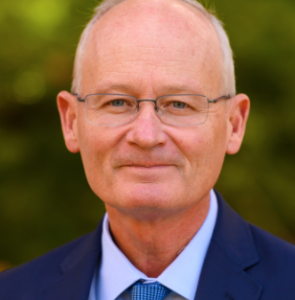By Mark Reynolds and Vasudha Deshpande
Citizens’ Climate Lobby
COVID-19 is first and foremost a public health crisis, but as it has unfolded, it has rippled out into an economic crisis, too. The stock market has been volatile, lurching in ways we haven’t seen since the 2008 recession. Businesses are closing their doors as millions stay home to try to limit the spread of the virus. In our community, we’ve seen schools, restaurants, daycares, gyms, salons are closed. Travel restrictions out of state.
All of this means families in Northern Kentucky and across America are feeling unprecedented economic pain. There is likely more to come. It’s heartbreaking and frightening for so many.

Mark Reynolds
To support people suffering from the economic impacts of the pandemic, Congress passed an emergency relief package that will give direct payments of $1,200 to most adults and $500 to most children. Before they chose that particular path forward, our elected leaders considered multiple proposals. Members of the Republican-led Senate, the Democratic-controlled House, and the Trump administration all had ideas for getting cash to people, from one-time payments to monthly payments of varying sizes.
“We need cash in the hands of affected families,” said Republican Senator Tom Cotton from Arkansas, one of the first conservatives to call for this type of relief.
“So many people in this country are worried about what happens when their mortgage/rent/car payments/bills are due,” Democratic Congresswoman Maxine Waters posted on Twitter, sounding the alarm and calling for monthly payments throughout the duration of the crisis.
In the early stages of this discussion, there were no fewer than nine proposals for direct cash payments. We’re encouraged to see the broad agreement that during a crisis, it helps to put cash in people’s pockets and let them spend it how they see fit.
When Congress is able to turn its attention to climate change — another looming crisis — it should not forget this lesson: Direct cash payments are a simple, transparent, and fair way to support Americans when economic winds are shifting.
Climate change demands that we stop emitting greenhouse gases, which are trapping excess heat in our atmosphere and upsetting our planet’s delicate balance. Over the next 10 years, America needs to move from a fossil fuel-based economy to a clean energy economy. That will be a major change, but it should not be an acute crisis like we’re in now. By planning to give cash payments to Americans, we can ensure the health of our economy while making a gentle transition to a clean energy future.
Here’s how. Congress could put a price on carbon pollution, driving our economy away from fossil fuels and toward clean energy sources, and it could rebate that money as an equal cash payment, or “dividend,” to all Americans each month.

Vasudha Deshpande
Cash payments put Americans themselves in the driver’s seat with their own finances. Individuals like us are empowered to make our own decisions about how we spend that money. We can pay bills, buy groceries, save, invest in a more energy-efficient car, spend it at a local business, or anything else.
This is especially important for low- and middle-income Americans, who might otherwise struggle with the cost of energy and other price increases as we shift to a clean energy economy. When dividends are given to everyone on a regular basis, regardless of their income status, low- and middle-income Americans benefit dramatically. For anyone concerned about the “least of these” in our society—who are uniquely vulnerable to both economic shocks and climate change impacts—direct cash payments are an effective tool to help meet their needs.
Finally, cash dividends are transparent and easy to track, unlike tax offsets. That visibility helps people and our elected officials stay focused on the problem at hand: right now, the pandemic. Soon, climate change.
The IRS has started depositing the one-time payments to U.S. households during this desperate time. Should more help be needed, especially for those in difficult circumstances, we hope cash payments will be extended through the duration of the crisis.
It’s clear that money in the hands of Americans helps keep our economy running. That’s why Congress and the President are using this tool in the current crisis. When we’ve dealt with COVID-19, let’s use that same tool to combat climate change.
Mark Reynolds is the Executive Director of Citizens’ Climate Lobby. Vasudha Deshpande is a member of the Northern Kentucky chapter of Citizens’ Climate Lobby.

















And the dividend pays for itself. It doesn’t add to the deficit.